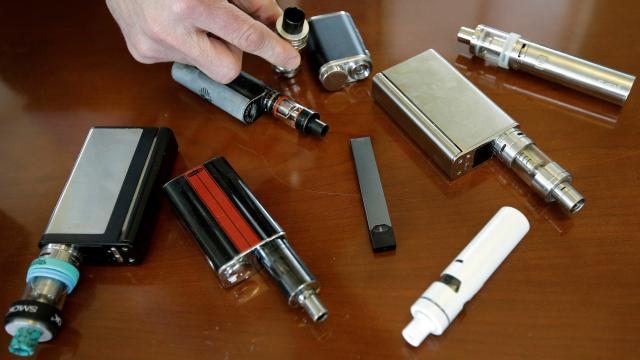The U.S. House Energy and Commerce Committee and the Massachusetts attorney general’s office are investigating exactly who spammed millions of bot posts promoting e-cigarettes while downplaying or misleading viewers on its effects on human health.
House investigators sent requests to five leading vaping manufacturers about whether they used bots to push vaping on social media, as well as provide account details of any such bots and whether their posts included paid-promotion disclosures, according to the Wall Street Journal.
One source told the paper the intent is specifically to find out whether major companies were engaged in deceptive, targeted social media marketing. The Massachusetts investigation is focused on what the Centres for Disease Control has called skyrocketing rates of vaping among young people, and whether companies used the bots to illegally market to minors.
The House and the Massachusetts attorney general are not alone: Both the U.S. Federal Trade Commission and the U.S. Food and Drug Administration are also investigating social media marketing, with the FTC ordering several companies to submit reports on “all expenditures for advertising on any company-controlled social media account or channel.”
Spokespeople for Reynolds American Inc. and Juul Labs Inc. told the paper their companies did not use bots, while NJOY LLC and Japan Tobacco International USA Inc. have also denied they were involved. Fontem Ventures, the owner of e-cigarette manufacturer Blu, didn’t respond to the Journal’s request for comment.
The Journal noted that public health nonprofit Public Good Projects recently released a report (funded by the Nicholson Foundation) indicating that of 1.2 million tweets related to e-cigarettes or tobacco, roughly 77 per cent came from suspected or likely bot accounts. A 2015 study in the Journal of Medical Internet Research found that between 2008 and 2013, of 1.7 million tweets about e-cigarettes, approximately 93.4 per cent were advertisements.
The entire vaping industry, particularly heavy hitters like market leader Juul, has run into severe backlash from federal and state health officials the country over in recent months. Juul is facing multiple investigations into whether it marketed to minors or misled consumers on the safety of its products, and was recently reported to be facing a 35 per cent stake in the company to smoking giant Altria.
An ongoing America-wide outbreak of vaping-associated pulmonary injury (VAPI) appears to be related to contaminated THC cartridges rather than nicotine products, but has nonetheless dumped truckloads of fuel on the fire.
The White House has publicly mulled a federal ban on flavoured vaping products, while Massachusetts officials ordered an emergency ban on all vaping products. New York and Michigan have implemented less sweeping bans.
According to the Journal, it’s possible that vaping giants may escape culpability on the specific issue of bots. Georgia State University professor Jidong Huang, who has researched e-cigarette related tweets, told the paper he believed it was mostly smaller companies that were involved. United Tobacco Vapour Group USA founder Ray Story said the use of bots is widespread in the industry as a “cheaper but very effective alternative that a lot of companies used.”
Another report in the New York Times on Monday emphasised the role played by inaction at the FDA as vaping became an industry with $10 billion in annual sales.
According to the Times, interviews with dozens of U.S. federal officials and American health experts pointed the finger to an “intense lobbying effort by the e-cigarette and tobacco industries, fears of a political backlash in tobacco-friendly states, bureaucratic delays, and a late reprieve by an F.D.A. commissioner who had previously served on the board of a chain of vaping lounge” ” Dr. Scott Gottlieb, who gave the industry a four-year delay on enforcement of tobacco regulations in 2017.
